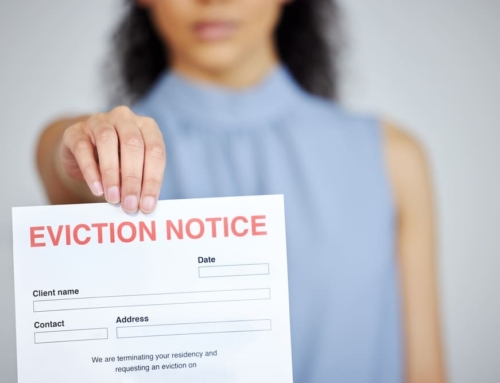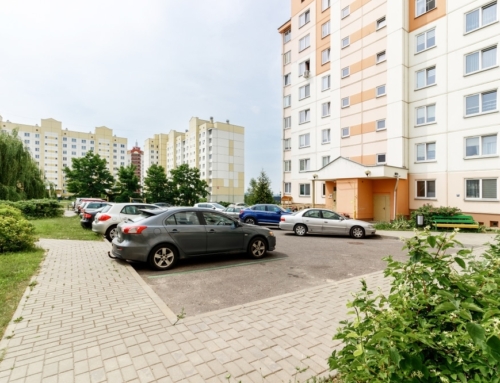Not all landlord tenant complaint and issues need to be handled with a lawyer, some need some common sense understanding.
 Q: I recently purchased a nice four bedroom apartment in Miami. Many years ago, a former owner took two condominiums, each with two bedrooms, and combined them into a four bedroom apartment.
Q: I recently purchased a nice four bedroom apartment in Miami. Many years ago, a former owner took two condominiums, each with two bedrooms, and combined them into a four bedroom apartment.
When I purchased the property, the property has only one “folio” or tax number. I placed the apartment on the rental market and rented it. Recently the tenant informed me that part of his apartment did not have power. The tenant called the electric company and was told that the apartment has two electric meters and receives two electric bills.
It took several days for the electric company to restore the electricity to that part of the apartment and the food in his refrigerator was spoiled. The tenant claims I’m responsible for his loss and inconvenience. I didn’t know that there were two electric bills to the unit as the seller’s listing broker that sold me the property did not tell me.
Should I pay for the tenant’s inconvenience and his spoiled food or should the seller’s real estate agent be liable.
A: Your question might best be described as one of those questions we rarely see that leave us puzzled.
Frequently, owners of multiple units in condominiums will combine those units to create one larger unit. When they do combine the units, they will have certain legal, architectural and logistical changes to make the combined unit work as a whole.
Depending on the condominium’s laws, a homeowner might be required to make changes to the condominium documents to combine two units into one. The owner might need to hire an architect and surveyor to create the plans and documents that might be needed to amend the condominium documents. In some cases, local laws may require that a combined unit have only one kitchen so that it may be considered a single family condominium unit.
Once these actions have been completed, the local tax office can bill the combined unit as one and issue one tax bill for the property.
In conjunction with the changes to the condominium documents, the owner usually combines the units to make them feel like one home. The owner will create one main entrance for the home and will create one flowing residence inside the combined units.
Since water frequently is provided by the condominium association, the homeowner usually does not have to do anything to take care of water meter issues. However, if there is gas in the unit for the kitchen stove or for heating, the architect might make plans to have all the gas flow through one gas meter. And, with respect to the electrical work, and in particular if the electrical boxes and meters are in the same location, the homeowner usually will combine the electrical service for the combined condominium unit.
It seems from your letter that the prior owner took care of all of these issues but decided to keep the two electrical service meters, so that one part of the combined condo was serviced by one meter and the other serviced the other half. Unfortunately for you, when you invested in real estate and purchased the condominium you didn’t know you had two meters servicing your property and couldn’t inform your tenant. But you did know that the two condominiums were combined into one.
Sometimes the electric company figures out this issue when a person calls to set up service. A tenant can call and give the address where they need service and the electric company may have the account flagged as having two accounts. Unfortunately that didn’t happen either and your tenant ended up having part of the electrical service shut off in the condominium.
Most residential leases provide that the landlord isn’t responsible for losses caused by damages to the tenant’s personal property. That would mean that if a hurricane hit your area and your tenant’s personal property was lost in the storm, the landlord would not be responsible for that loss. The same could be said in this case. The tenant bears the risk of loss for his or her items of personal property in the home, including the food in the refrigerator.
So while your tenant would bear the risk of any loss to his or her personal effects in the condominium, you have one other issue to deal with and that has to do with your relationship with the tenant.
While you would want to talk to a real estate attorney to go over your lease and any laws that may affect your responsibilities with your tenant, you might feel bad for your tenant. He moved into the unit, set up his utilities and thought he was done. Unfortunately, there was a shut off of the power through no fault of yours or your tenants.
However, as the owner, you should have known more about your property. If you inspected the property before you purchased it, your home inspector might have alerted you that you had two electrical meters feeding the home.
While you might want to blame the listing broker, it isn’t usually the listing broker’s responsibility to disclose these issues to you. Unless the seller failed to properly convert the two condominium units into one properly, you wouldn’t have any recourse against the seller, which brings you back to deciding how to deal with your tenant.
If the tenant is a reasonable person, you might volunteer to share in the expense of the loss of the food, but not offer to pay for inconvenience. While the tenant may have been inconvenienced, you did not purposefully cause the problem and the tenant should bear that risk. However, with the food, you might be willing to split the cost as a gesture of good faith.
While you won’t know if you are legally obligated to pay anything to your tenant unless you consult with a real estate attorney, your legal costs may exceed the money you could offer the tenant to keep the tenant happy – and these days, keeping your tenant happy is an important part of being a landlord.





Leave A Comment